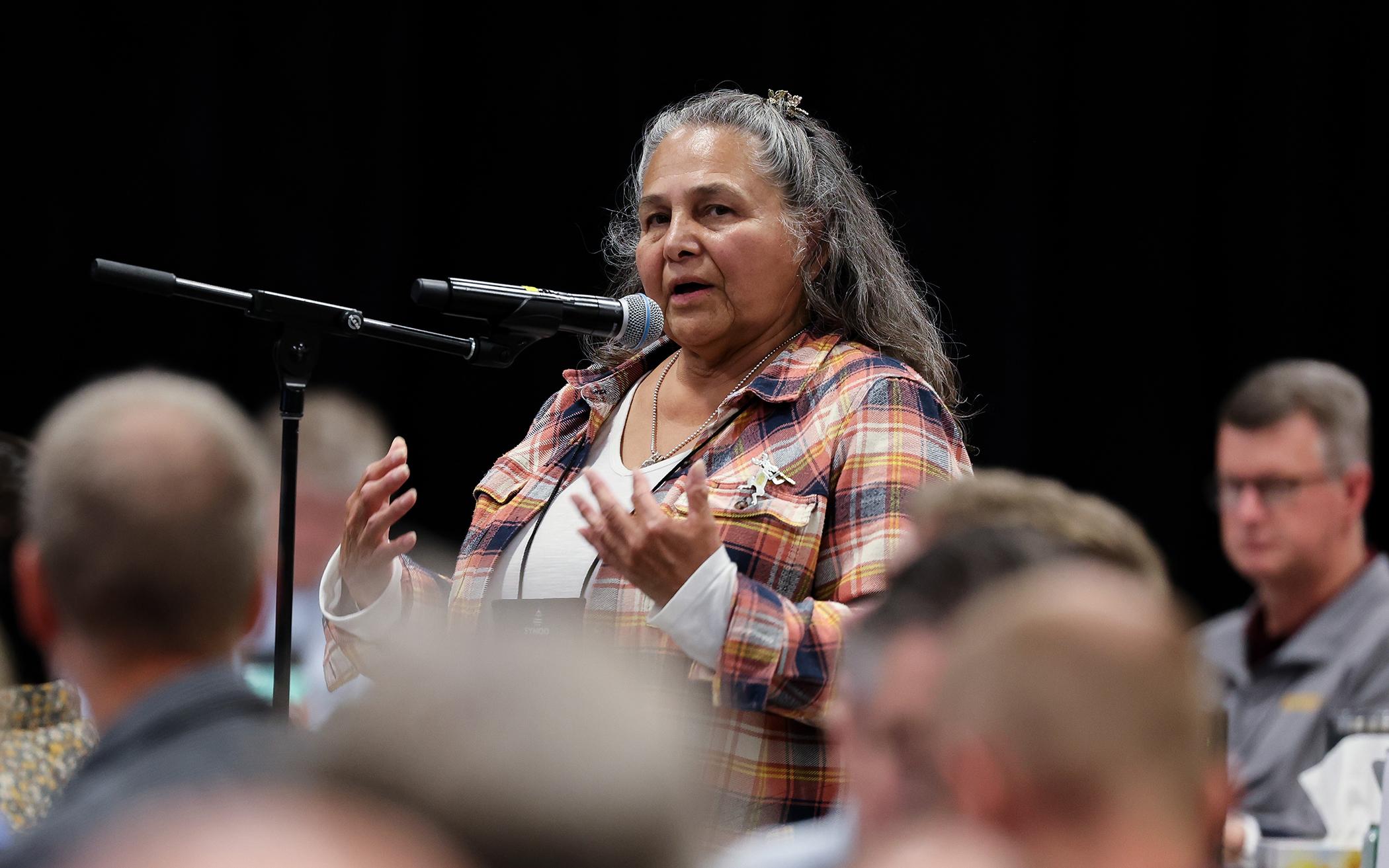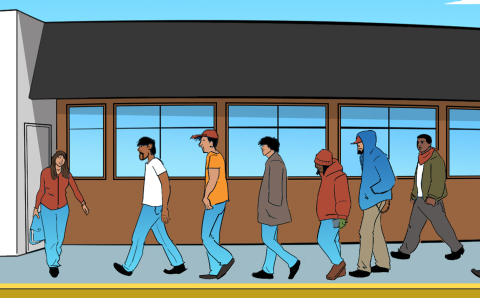The Christian Reformed Church in North America desires to stay united as a binational denomination. Synod 2025 voted to not accede to a request from the council of Meadowlands Fellowship CRC in Ancaster, Ont., that wanted to “envision two distinct Christian Reformed Churches.” Synod is the annual general assembly of the CRCNA. It is meeting June 13-19 in Ancaster.
The decision was made with overwhelming support—the reported vote was 171 to 3, with one abstention. Before taking the vote, there was a lengthy conversation, almost entirely in support of remaining one denomination.
Phil Apoll, Classis Ontario Southwest, presented the report on behalf of the committee reviewing Meadowlands’ request. Although he wasn’t the committee’s regular reporter, Apoll said, “We felt it was important to have a Canadian reporter” to respond to this overture (request).
Apoll noted that the Canadian Classis Quinte is “organizing a meeting of Canadian delegates and Canadian classes to think about Canadian ministries and Canadian context” for later this year. In the discussion, several delegates mentioned this and that the gathering, allowable under Church Order Article 44, gives the Canadian churches much of what is desired. Martin Spoelstra, Classis Quinte, said, “We can do everything that this overture suggested through Article 44 and it still be uniquely Canadian.” The article allows neighboring classes to “take counsel or joint action” together, “in matters of mutual concern.” In so doing, with approval of synod, they “may organize themselves into an ecclesiastical assembly that will function on the level of classis, with freedom to determine the delegation from the constituent classes and the frequency of meetings.” Gary van Leeuwen, Classis Alberta South/Saskatchewan, said, “I am very happy with the work of Classes Quinte in calling us together.”
Caleb Bosveld, young adult representative, spoke with great appreciation for the binational CRC and hoped that synod would vote in favor. (Young adult representatives are appointed to serve synod on advisory committees and may speak to matters in plenary session, but may not vote.) Bosveld said, “During Pentecost the Spirit was poured out on people from all nations, through the Spirit they were able to understand each other and unite in Christ. This overture supports the opposite, to divide because of our differences.” He said, “There are differences in our cultural contexts, but these are not defined by the border,” noting that churches in the same country also experience different cultural contexts. Bosveld said, “We have shown, as a synod, that we are able to make decisions on issues that disproportionately affect a country, in a unified and discerning manner. For example, our unanimous decision on medically assisted suicide yesterday, which disproportionally affects Canadians.”
Greg Sinclair, Classis Toronto, was against the decision, saying, “I love my American brothers and sisters, I love my Canadian brothers and sisters, but this overture (the Meadowlands request) is an opportunity to push context a little bit because context is important.” He said, “I know we had trouble yesterday expressing appreciation for Canadian Justice Ministries—that hurts, that we could not fully embrace them and thank them.” Sinclair added, “I just want to really encourage people to think about how we can help the Canadian church really blossom.”
Many delegates spoke about living in both Canada and America and how being binational was a part of their identity. Rob Toornstra, Classis Columbia, was born in Canada and said, “We do so much better as a binational denomination—we are so much better for having our Canadian brothers and sisters as a part of our denomination working together for the kingdom of God.” Scott Elgersma, Classis California South, is Canadian-born, working in an American context. He said, “I am not who I am unless we have a binational church.”
Samuel Van Huizen, Classis Lake Superior, said his classis is the only binational classis, and he wanted to “remind folks that Canadian and American churches in the classis really depend upon each other for support.” He said his classis is an “example at a small-body level where we’re working together.”
Delegates also addressed how ecclesiastical unity can overcome political differences. Richard Van Donkersgoed, Classis Huron, said, “Politically, (some) Americans are not aligned within this room, (and) politically (some) Canadians are not aligned in this room,” but, “within this room, we can be aligned despite our differences.”
Marilyn Rodriquez-Bowman, Classis Red Mesa, said, “We cannot tear apart the family of God. There’s no border between here and there. In order to stay strong together we need each other. We have to have the ability to persevere together.”
Aaron Thompson, Eastern Canada, was in favor of the decision. He expressed appreciation for the church that raised the concerns, saying, “As a Canadian there are certainly times when binational ministry certainly feels challenging” but that “separation, I believe, is fundamentally flawed.”
Synod 2025, the annual general assembly of the Christian Reformed Church in North America, is meeting June 13-19 on the campus of Redeemer University in Ancaster, Ont. Find daily coverage from The Banner at TheBanner.org/synod. Visit crcna.org/synod for the agenda, advisory reports, recordings of plenary sessions, and to subscribe to the daily Synod News email.
About the Author
With a passion for words and creativity, Kristen Parker has been a freelance news correspondent for The Banner since 2019. She became the communications coordinator for Canada with Christian Reformed Church Communications in 2025. Kristen and her husband Chris, enjoy running and thrift shopping. They attend Stratford CRC in Stratford, Ont.









